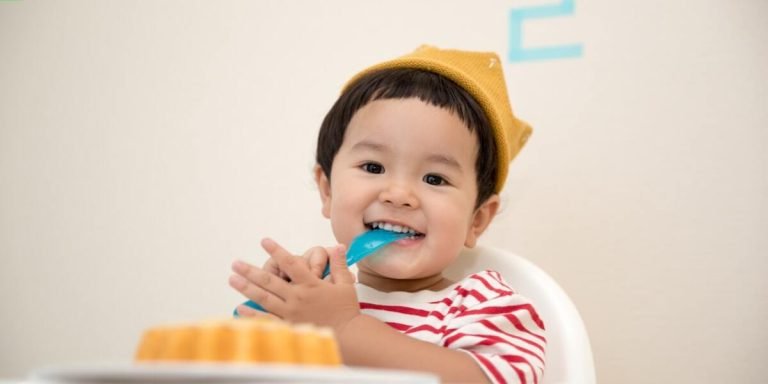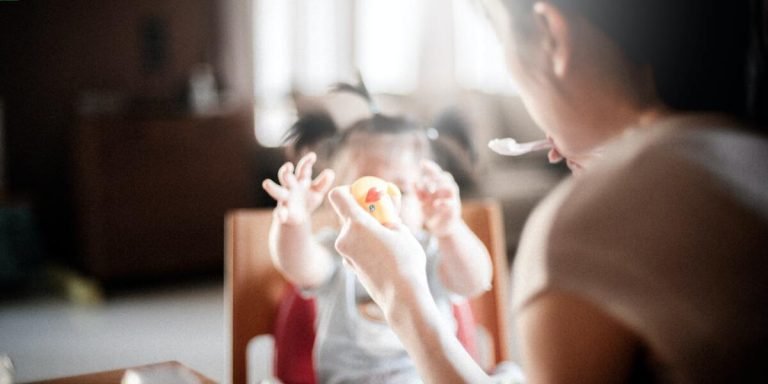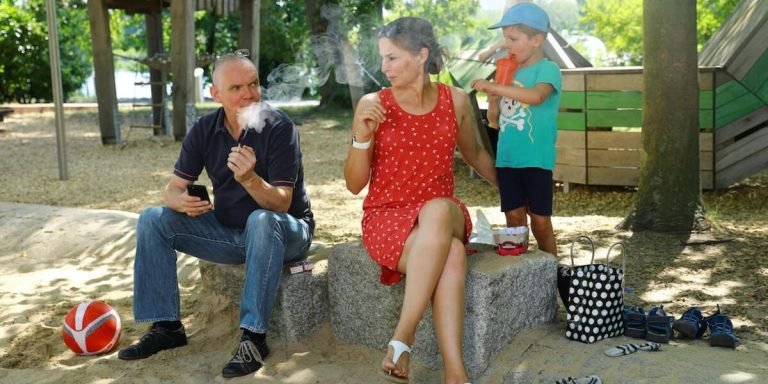Montessori Toys: A Comprehensive Guide for Educators and Parents
When it comes to early childhood education, Montessori toys play a significant role in the cognitive development of children. These pedagogical tools were specifically designed to foster an environment where kids can explore, learn and grow at their own pace. By utilizing Montessori toys as part of the learning process, educators and parents alike can create a rich educational experience that nurtures young minds.
The use of these special aids encourages children’s curiosity and self-directed play. As such, they hold immense value for shaping critical motor skills and improving sensory perception among youngsters while ensuring each child’s individual interests are catered to during growth stages. The significance becomes even more apparent when you understand how integral they are in developing independence, concentration span and problem-solving capacities from an early age.
Did you know?
Did you know? Maria Montessori, the creator of Montessori educational philosophy, was one of Italy’s first female physicians. Her approach to education is essentially centered on fostering a child’s natural interests and curiosity.
Understanding the Role of Montessori Toys in Early Childhood Development
Montessori toys play a significant role in early childhood development by helping children explore their world at their own pace. Unlike traditional toys, these assist youngsters in thinking creatively and problem-solving while encouraging them to be independent learners. Essentially designed on the principles of renowned educator Dr Maria Montessori, they serve as powerful educational tools that stimulate a child’s senses and cater to their natural curiosity.
In today’s fast-paced digital age where screens are often used for amusement or babysitting purposes, Montessori toys stand out as an effective way to keep the young minds engaged productively. They promote hands-on experience instead of passive learning from screens; hence proving beneficial in shaping attentive brains and fine motor skills among kids.
Furthermore, these skillfully crafted materials also pave way for building strong cognitive connections within brain circuits thus bolstering understanding of abstract concepts later during school years like math or logical reasoning. On top of that, simplicity calls beauty! Stripping away flashy colors and electronic features found commonly nowadays allows little ones to concentrate more effectively resulting into longer attention spans over time.
Benefits of Sensorial Exploration with Montessori Materials
In the world of early childhood education, Montessori toys play an integral part in nurturing a child’s development. These specialized tools are about more than just keeping young ones engaged and entertained. They offer substantial benefits that stimulate sensorial exploration – essential for cognitive growth.
Montessori toys garner their uniqueness from being expertly crafted to tap into a child’s inherent curiosity. Through this methodical approach, children learn by doing things themselves – promoting active learning rather than passive absorption.
Additionally, Montessori toys help foster independence among youngsters as they structure tasks towards self-correction enabling little ones to identify errors independently without adult intervention—a key booster for their confidence levels!
These carefully designed objects also support problem-solving skills—the heart of cognitive development! The tactile exposure assists kids with developing logical reasoning abilities by forming connections between physical processes and anticipated outcomes—exploring order within chaos essentially!
Creating opportunities for creative thinking is another defining aspect where Montessory shines bright! It allows freedom beyond rigid boundaries fostering open-ended playscapes—and hence—it nurtures creativity like no other thing can do in early years!
Lastly but importantly—they boost fine motor skill refinement introducing elements requiring focus on minute details such as threading beads or using tiny tongs—an obvious stepping stone towards letter formation later stage handwriting per say!.
Cognitive Growth Driven by Self-Directed Play
“Montessori toys are renowned for their unique ability to foster self-directed play, leading to significant cognitive growth in young children. Unlike mainstream toys that often aim at mere entertainment, these educational tools have a broader objective – empowering children with the skills they need as they embark on their journey of learning.
The philosophy behind Montessori education is simple yet profound: let kids be explorers and architects of their world. And this principle finds expression through Montessori toys – concrete materials designed specifically around child development stages and age-appropriate activities.
When it comes to developing problem-solving abilities or honing logical thinking skills, few things can match the efficacy of montessori manipulatives like number rods or geometric solids. These allow youngsters not only grasp abstract concepts remarkably quickly but also gain an appreciation for orderliness and precision which carries over into other aspects of life.
Meanwhile sensory-based toys such as sandpaper letters enhance tactile perception while simultaneously familiarizing toddlers with alphabets forming a robust foundation for literacy- another clear testament how early childhood education can benefit immensely from self-guided exploration!
Selecting Appropriate Montessori Toys for Different Developmental Stages
Choosing the right Montessori toys for various stages of a child’s growth is fundamental in supporting their cognitive, emotional and physical development. These aren’t just typical playthings; they are well-designed learning tools geared towards nurturing specific skills that complement each age group.
At an early stage, children exhibit a high level of curiosity about their surroundings which facilitates rapid learning. The key is to identify toys with elements like colors, shapes or sounds that catch your youngster’s attention and trigger exploration. For instance, consider brightly colored stacking blocks: these stimulate spatial awareness while refining motor skills as the little one arranges them by size or shape.
As kids grow older into toddlers (from 18 months onwards), games involving sorting objects based on color or type begin to be more relevant – this fosters cognitive development through problem-solving tasks. Meanwhile interactive storybooks serve dual purposes enhancing language acquisition plus creative thinking by weaving imaginative tales from pictures seen.
Toys should evolve along with our children’s abilities so we continually challenge them whilst keeping activities engaging thus ensuring continuous learning at every life phase even up to preschool years where complex puzzles become applicable challenging logical thought processes encouraging both patience and focus.
Remember that Montessori-based teaching doesn’t fall solely within school confines—it can extend seamlessly into home environments making it crucial that parents too understand how best to select suitable educational games affecting overall childhood education positively in 2023 and beyond!
Tailoring Toy Choices to Encourage Age-Specific Skills
Tailoring playtime with specifically chosen Montessori toys can be an effective tool in cultivating crucial developmental skills at various stages of your child’s early years. By aligning the choice of toys with their age and growth, you’re actively supporting neurocognitive advancement while also ensuring they have fun.
For newborns (0-6 months), sensory exploration is essential. Choose Montessori toys like soft stuffed animals or texture-rich items that stimulate touch, sight, hearing and motor abilities such as grasping reflexes. Rattles or teething rings are perfect examples for this stage.
Once your little one steps into the 7 -12-month range, development gears towards fine motor dexterity and cognitive function enhancement; nesting blocks or shape sorters may prove beneficial during these times to promote problem-solving abilities whilst engaging hand-eye coordination effectively.
As toddlers (1-3 years) become increasingly mobile and curious about understanding cause-and-effect relationships around them, practical life materials used in daily routines become entertaining learning points through role-playing activities. Wooden stacking games make excellent montessori toys for honing balance techniques along with improving concentration levels significantly.
Balancing Challenges and Skill Levels for Progressive Learning
Balancing the challenges with skill levels is a critical aspect of progressive learning in early childhood education. Montessori toys play an essential role in this domain as they are designed to support youngsters’ cognitive development at different stages.
To begin, it’s necessary to understand that each child is unique and develops skills at their own pace. While one might excel in motor skills, another may be adept at language or creativity. Having an array of age-appropriate Montessori toys can cater to these diverse needs effectively.
When choosing Montessori toys for your little ones, focus on their current developmental stage rather than their actual age. For instance, toddlers who’ve just begun exploring shapes would benefit from simple puzzles while preschoolers preparing for school could use more complex sets involving alphabets or numbers.
Another vital point worth mentioning here revolves around presenting such educational tools without overwhelming them; too many options can lead to sensory overload and reduced interest over time – not quite what we aim for! So instead of filling up toy boxes with countless items all at once consider picking 2-3 varieties initially then gradually introducing others based on progress observed.
Additionally ensuring a balance between challenge and successful completion maintains engagement level high compelling kids return repeatedly thus enhancing mastery through repetitive practice – core principle underlying entire concept ‘Montessori approach’ teaching!
Incorporating Montessori Principles into Home Education Environments
Incorporating Montessori principles into a home education environment can be an enriching and rewarding experience for both the child and parent. When we talk about Montessori, it’s fundamentally based on self-directed activity, hands-on learning, collaborative play with purpose built tools like ‘montessori toys’. These educational toys are not just fun to engage with but also designed thoughtfully to help children develop their motor skills, cognitive abilities as well as emotional intelligence.
The beauty of these montessori toys lies in their simplicity yet ingenious design that promotes creativity and critical thinking. They encourage exploration by offering different ways each toy could be used or played with. This approach helps centralize the importance of curiosity-driven discovery in early childhood education.
As parents who might have limited formal training in teaching methodologies transitioning into educators due to current circumstances such necessity or choice it becomes even more relevant.
Adopting Montessori methodology at home doesn’t require you to fully recreate a classroom setting though; rather it encourages letting your surroundings become part of your child’s learning ecosystem where every day objects can take up roles traditionally performed by educational aids – think measuring cups for understanding volumes or baking cookies together while discussing basic math! It’s all about making everyday activities instructive yet playful.
Creating an Engaging Learning Space with Educational Playthings
Creating an engaging learning space for your child can be a potent tool to foster their innate curiosity and desire to learn. Incorporating Montessori principles into home education environment ushers in structured yet enjoyable learning experiences. Among the various educational materials used based on these principles, Montessori toys stand as game-changers.
Montessori toys are no ordinary playthings; they’re carefully designed tools that stimulate children’s senses whilst promoting self-directed activity. They serve dual roles – keeping young minds entertained, while subtly helping them develop essential skills like fine motor coordination, problem-solving, concentration and spatial awareness.
Incorporate this successful method into your childhood education efforts at home by following these steps:
1. Choose Toys That Grow With The Child: An ideal outcome of early childhood education is independent thinking and growth mindset development – outcomes effortlessly achievable through Montessori toys use! You’ll find many such ‘grow-with-me’ type options in the market today ranging from stacking blocks to shape sorters or simple puzzle boards—all aimed at developing kids’ cognitive abilities gradually over time.
2. Focus On Skill Development: Each toy should target specific skill developments—for instance wooden number puzzles enhancing math skills—therefore choose accordingly!
3.Black And White For Infants: Newborns have limited color vision hence initially opt for black-and-white patterned books or rattles handing clear visual contrast.
Fostering Independence Through Thoughtfully Designed Activities
Fostering Independence in your child is a critical objective for every parent or educator. The great news is that this can be achieved remarkably well by incorporating thoughtfully designed activities, especially those inspired by Montessori principles at home. With the emphasis on self-directed and hands-on learning, using “Montessori toys” proves to be a powerful tool.
To start with, providing children with open-ended play opportunities boosts their creative thinking skills and decision-making abilities – key elements of independence. For instance, multi-purpose blocks are considered staple Montessori toys because they encourage free-play while subtly teaching about basic shapes and coordination.
Next up are practical life activity trays like washing dishes setup or plant watering activity which teach them responsibility alongwith real world applications.
Figurines depicting humans from different professions introduce diverse life roles early on stimulating social understanding which forms an integral part of our daily lives as adults.
Conclusion
In the realm of early childhood education, Montessori toys have carved out a niche for themselves – enabling our little ones to learn through play in an intuitive and interactive manner. They are not mere idle playthings; they are tools that spark curiosity, foster creativity, and promote cognitive development.
So next time you find yourself considering educational materials or toys for your child’s learning journey, remember – “Montessori Toys” could be your answer! We invite you to explore further into our website where we offer more resources on children’s education as well as support for parents and educators alike. The quest for knowledge is never-ending but with solid guidance from seasoned professionals like us navigating it becomes less daunting.
Dive deeper into this treasure-trove of information because here at [website name] educating children goes far beyond just ABCs.







